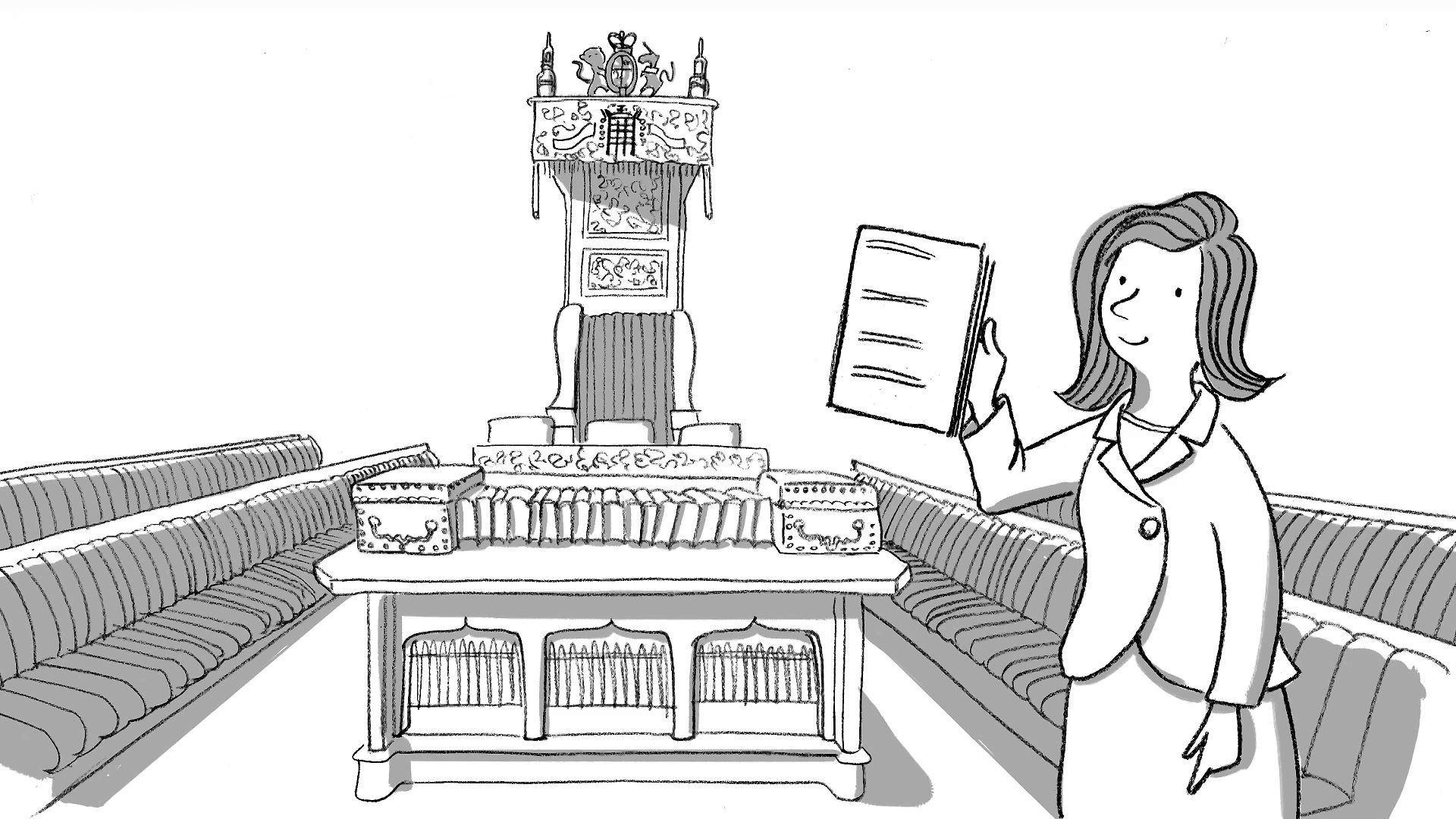Learn about the paper petition or an online e-petition for writing request to the British Parliament or government

Learn about the paper petition or an online e-petition for writing request to the British Parliament or government
Petitioning the British Parliament or government.
© UK Parliament Education Service (A Britannica Publishing Partner)
Transcript
A petition is a way of getting your voice heard in parliament. It's a written request asking the House of Commons or the government to take action on something. You prepare your petition and get people who agree with you to sign it.
There are some kinds of petition that we can't accept. Have a look on our web page to make sure. You can always get in touch with us to clarify before you start work. You can send us two types of petition, a paper petition or an online e-petition. A paper petition asks the House of Commons to do something. For example, make a new law or change an existing one, or put pressure on the government to take action on a particular issue.
Paper petitions are normally from a local area. This isn't a rule, but you'll need to collect hand-signed signatures, which is obviously easier to do close to home. Once your paper petition is ready, you'll need to find a member of parliament willing to present your petition to the House of Commons.
An online e-petition can ask the government, as well as the House of Commons, to do something. If your issue is national, then this is usually the best way to collect signatures from around the country, as you'll be putting your petition up on line for anyone to sign. You can browse the website for other petitions, and sign any which you strongly agree with.
So what happens next? The Petitions Committee-- that's a group of MPs from different parties-- will decide if they want to investigate your petition. In other words, they might want to find out more information from the public, or experts, or from the government or have a debate on it in the House of Commons.
E-Petitions that receive 100,000 signatures will definitely be considered for a debate. Most paper petitions will receive a response from the government, as do all e-petitions which receive 10,000 signatures or more. And all petitions are recorded in the official record of parliament.
Whatever else happens, even if your petition doesn't get picked up by parliament for debate or action, you'll certainly have helped get publicity for your campaign. You may decide to stop there or continue campaigning in other ways. Just remember, the most famous campaigns in history often started with a petition.
There are some kinds of petition that we can't accept. Have a look on our web page to make sure. You can always get in touch with us to clarify before you start work. You can send us two types of petition, a paper petition or an online e-petition. A paper petition asks the House of Commons to do something. For example, make a new law or change an existing one, or put pressure on the government to take action on a particular issue.
Paper petitions are normally from a local area. This isn't a rule, but you'll need to collect hand-signed signatures, which is obviously easier to do close to home. Once your paper petition is ready, you'll need to find a member of parliament willing to present your petition to the House of Commons.
An online e-petition can ask the government, as well as the House of Commons, to do something. If your issue is national, then this is usually the best way to collect signatures from around the country, as you'll be putting your petition up on line for anyone to sign. You can browse the website for other petitions, and sign any which you strongly agree with.
So what happens next? The Petitions Committee-- that's a group of MPs from different parties-- will decide if they want to investigate your petition. In other words, they might want to find out more information from the public, or experts, or from the government or have a debate on it in the House of Commons.
E-Petitions that receive 100,000 signatures will definitely be considered for a debate. Most paper petitions will receive a response from the government, as do all e-petitions which receive 10,000 signatures or more. And all petitions are recorded in the official record of parliament.
Whatever else happens, even if your petition doesn't get picked up by parliament for debate or action, you'll certainly have helped get publicity for your campaign. You may decide to stop there or continue campaigning in other ways. Just remember, the most famous campaigns in history often started with a petition.









